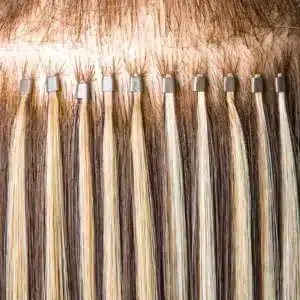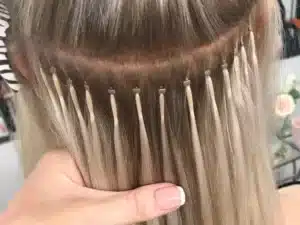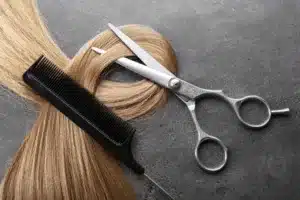Ethics matter in beauty. You want great hair and a clear conscience. You also want facts, not guesswork. Let’s look at where hair comes from, how it is made, and how to verify ethical sourcing.
Yes, hair extensions can be ethical. It depends on the source, consent, fair pay, safe work, and clean processing. This guide explains modern procurement chains, real risks, and a simple audit checklist you can use before you buy.

Below you will find real-world sourcing paths (now dominated by voluntary, fairly paid supply chains), country models, factory standards, and a step-by-step vetting process. Use it to choose products that match both your values and your quality goals.
What are ethical hair extensions?
You want a clear, practical definition that your team can apply. You also want a standard that works across regions and product types.
Ethical hair extensions are products made from hair that was voluntarily sold at a fair market price, moved through a documented, transparent chain, and processed in factories that protect workers and water. The definition applies to human hair and to synthetic alternatives with verified environmental measures.
- Voluntary, fairly paid procurement: Donors sell hair by choice in open, posted-price markets or audited auctions. Receipts show date, weight, length, and price. Where relevant, community or temple auctions publish results and use funds for public services.
- Traceable documents end-to-end: Each transfer creates a record—station license, lot sheet, invoice, transport note, and factory intake log. Lot IDs match across documents.
- Safe and lawful production: Workers receive PPE, training, breaks, and safe equipment. Factories track incidents and keep training logs.
- Controlled chemistry and wastewater: Plants maintain MSDS binders, chemical ledgers, restricted-substance lists, and legal wastewater permits with test reports.
- Independent checks: Recent third-party audits (social and environmental) exist. Findings have corrective actions with timestamps and photo proof.
Ask for documents first. If a supplier shares them fast and welcomes audits, you are on an ethical path.
Where do extension companies get their hair from?
Many people still picture random collections and guesswork. You want clarity. You also want proof that today’s hair market pays fairly and respects consent.
Modern extension hair comes mainly from voluntary, fairly paid supply chains. Donors sell hair by choice, at clear market rates, through established buying stations and licensed traders. This model operates in China, India, Vietnam, Russia, and other regions, with receipts, scales, and recorded lot data that support traceability.

Across major sourcing countries, procurement looks like a normal agricultural or textile raw-material chain:
- Community buying stations: Registered buyers post price ranges by length, weight, and condition. Donors walk in, agree on a price, watch the weighing, and receive payment on the spot. Simple receipts list date, weight, and price.
- Licensed collectors and brokers: Middlemen exist, but licensing and paperwork reduce abuse. Reputable firms record lot codes, region, and length mixes.
- Ponytail preference: Collectors prioritize ponytails cut in one direction to preserve cuticles. This supports higher prices for donors and better quality upstream.
- Temple and community auctions (India): Hair donated for religious reasons is sold in audited auctions. Funds support community services. Buyers obtain invoices that prove lawful purchase and volume.
- Quality sorting and transport: Lots move to sorting hubs where workers grade by length, texture, and direction. Full cuticle lots remain aligned. Mixed lots are declared and priced lower.
- Paper trail: Each transfer generates a record (invoice, lot sheet, or e-document). Good suppliers keep these for years and will share anonymized samples during due diligence.
What you should check: ask for recent anonymized donor receipts or auction invoices, station licenses, and lot summaries. Cross-check weights and dates. This shows a voluntary, fairly paid chain—not an opaque one.
Are human hair extensions ethical?
You need a quick way to evaluate ethics. You also need a tool your team can apply the same way every time.Human hair can be ethical when the procurement is voluntary and fairly paid, and when factories protect workers and the environment. Use a short checklist to compare suppliers. Choose those who share documents fast and welcome audits.
| Category | What to ask for (evidence) | Pass signal | Risk signal |
|---|---|---|---|
| Consent | Donor receipts or auction invoices | Clear documents with dates/weights/prices | No receipts or only verbal claims |
| Fair pay | Posted price ranges, payment proof (cash/mobile) | Prices tied to length/quality; donor present | “Flat” prices far below local norm |
| Traceability | Lot sheets from station → trader → factory | Lot IDs consistent across documents | Mismatched IDs / missing handover |
| Worker safety | PPE policy, training logs, accident records | Signed training sheets; PPE on photos/videos | No logs; PPE missing on shop floor |
| Environment | Chemical inventory, MSDS, wastewater permits | Treatment logs; test results on file | Unknown discharge or banned agents |
| Audits | 3rd-party social/env. audit in last 12 months | Action plan for any findings | No audit, no plan |
Use 4+ “Pass” across categories as a green light for a pilot order. Anything less deserves more questions or a site visit.
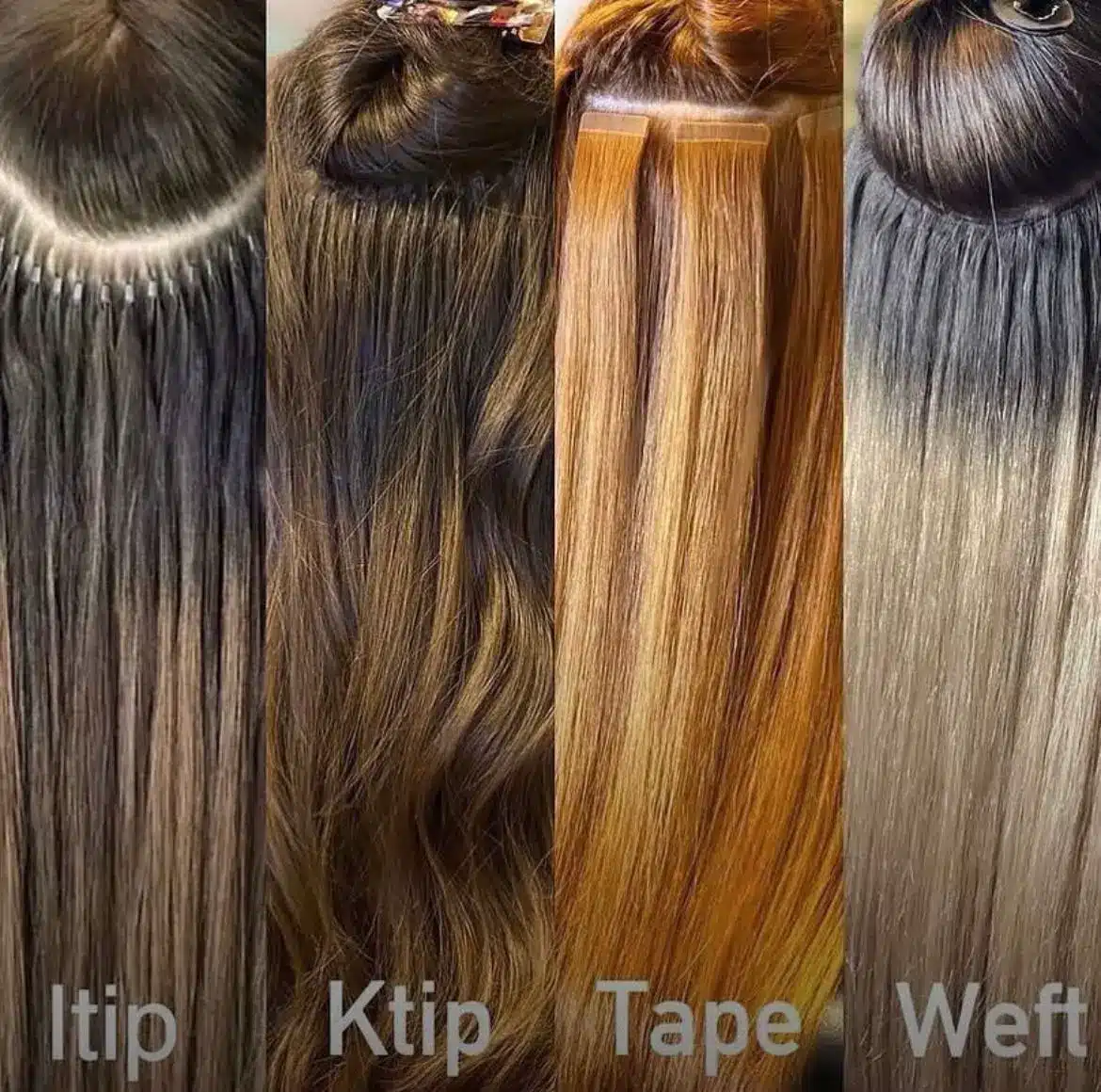
How is human hair extensions made?
You want to see where ethics show up in the factory. You also want to know what good control looks like at each step.
Production follows intake, sorting, cleaning, color work, assembly, finishing, and QA. Responsible lines protect cuticles, control chemicals, and treat wastewater. The best plants document every lot and test quality before shipping.
Dive deeper: inside the line, step by step
- Intake and registration: The factory logs lot ID, origin region, weight, and length mix. Managers sign off on receipt and storage.
- Manual sorting and alignment: Teams separate lengths and textures. Full cuticle lots stay aligned root-to-tip. Mixed lots are clearly marked for different product uses.
- Cleaning and sanitation: Controlled baths remove oils and dust. Staff use gloves and eye protection. Logs record temperature, pH, time, and batch numbers.
- Color work and toning: If tone is adjusted, formulas are weighed and recorded. Ethical lines avoid extreme bleaching on fragile lots and follow restricted-substance lists. Neutralization and thorough rinsing reduce residue.
- Assembly:
- Hand-tied weft: Workers stitch ultra-thin tops by hand for soft, flat seams.
- Genius weft: A cuttable, low-profile top without return hair to reduce scalp irritation.
- Tape-in panels: Hair is aligned and bonded to medical-grade adhesive films from reputable suppliers.
- Keratin tips: Pre-formed tips are pressed with controlled heat; tools are sanitized.
- Quality checks: Pull tests for shedding, tensile strength checks, color fastness tests, and weight verification. Results tie back to lot IDs.
- Packaging and labeling: Units are sealed with lot codes, length, weight, and color. Responsible factories choose recyclable packaging and include handling instructions.
Ask to see SOPs, training logs, MSDS binders, and test records. Good plants show them without delay.

Country models: China, India, Vietnam, Russia—how the fair chain actually runs
You hear many claims about regions. You want clean facts and a fair picture of how voluntary sales work today.
All four regions operate voluntary, fairly paid procurement chains with posted prices and receipts. Differences lie in donor profiles, lengths, and curl patterns. Each region now treats hair as a normal paid commodity with standard trade paperwork.
- China: Large sorting hubs and experienced factories. Strong capability for full cuticle alignment, consistent dye lots, and advanced product types (genius weft, invisible tape). Community buying stations and licensed traders dominate intake with standard receipts.
- India: Mixture of community sales and temple auctions. Temple lots are public and audited; proceeds support community services. Indian hair offers strength and a wide length range; aligners preserve cuticles for premium lines.
- Vietnam: Many donors sell hair for supplemental income at posted prices. Buyers favor long, straight textures. Stations weigh and pay in public view; receipts are common. Lots move quickly to regional sorting centers.
- Russia and neighboring regions: Donors sell long, light shades at higher price tiers due to rarity. Buying is voluntary and organized through small local networks with strong documentation to support color integrity and length.
In all regions, reputable suppliers can show donor receipts or auction invoices, plus licensed buyer documents and transport papers.
Are synthetic extensions more ethical than human hair?
Some people choose synthetic to avoid donor topics. You also need to consider plastic waste and performance.
Synthetic avoids donor risk but creates plastic and micro-plastic concerns. Human hair needs proof of consent and fair pay, but it is biodegradable and performs more naturally. Your choice should follow your values and the supplier’s evidence.
Dive deeper: trade-offs in plain terms
- Donor ethics: Synthetic wins by default. Human hair wins when the paper trail is strong.
- Environment: Human hair decomposes; synthetic does not. If you go synthetic, ask for recycled or bio-based fibers and waste plans.
- Wear and longevity: Full cuticle human hair lasts longer and styles like natural hair. Synthetic has limits under heat and friction.
- Total cost: Ethical human hair costs more upfront but can need fewer replacements, lowering long-term waste and cost per wear. Synthetic costs less but often cycles faster.
Pick the path that matches your customers, your brand, and your sustainability goals—then audit it.
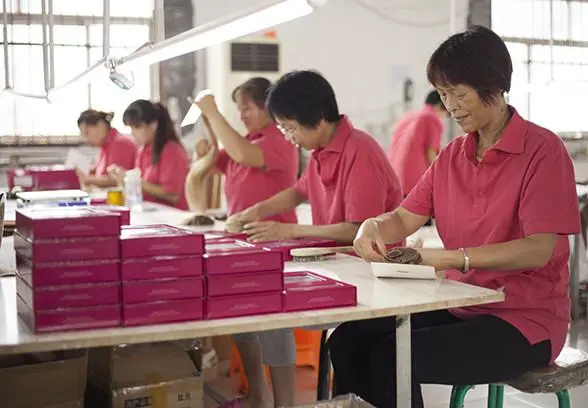
How can you verify that a supplier is ethical?
You need a repeatable method that works before every new relationship. You also want something your team can run without guesswork.
Ask for documents, not slogans. Verify lot by lot. Start small, test, then scale when records match the product in hand.
Dive deeper: a five-step due diligence playbook
1) Policy pack: Request written policies on donor consent, fair pay, worker safety, chemicals, wastewater, and child labor. No policy, no deal.
2) Lot documents: For the last three shipments, request anonymized donor receipts or auction invoices, station licenses, transport papers, and factory intake logs. Check dates and weights for consistency.
3) Factory controls: Ask for PPE policy, training logs, chemical inventory, MSDS sheets, and wastewater permits with test results. Request short floor videos (with date stamps) showing PPE in use.
4) Third-party checks: Get a recent social/environmental audit or agree on a pre-PO audit. If there were findings, ask for the corrective action plan and proof of closure.
5) Pilot and verify: Place a small order. On arrival, match labels to lot IDs, run a pull test, a comb-through test, and a simple color fastness test. Record results and file them with the lot documents.
Suppliers who run real ethical programs share documents quickly and accept audits. Delays and excuses are a red flag.
What does price say about ethics?
You want value, but you do not want “too cheap to be true.” Price should make sense once you add fair pay and documented processing.
A realistic ethical price reflects paid length premiums, alignment work, safe chemical controls, and wastewater treatment. Prices that sit far below regional norms usually mean missing steps, poor traceability, or weak quality.
Dive deeper: simple cost logic you can explain to stakeholders
- Raw material: Longer, aligned ponytails cost more; receipts prove it.
- Sorting and alignment: Skilled labor adds cost but improves lifespan and reduces returns.
- Chemicals and compliance: Safer agents and wastewater treatment cost money and protect people.
- Quality testing: Pull, tensile, and color tests take time and reduce warranty claims.
- Packaging and documents: Recyclable packaging and proper labeling help traceability and retail readiness.
When a quote is far below this logic, ask for documents. If none appear, you already have your answer.

My opinion
You deserve beautiful hair that respects people and the planet. The modern market delivers this through voluntary, fairly paid procurement chains and responsible factories. Choose partners who prove consent, pay fairly, protect workers, and run clean processes. Make ethics a checklist, not a slogan.
FAQ
Are most hair extensions today from voluntary, fairly paid chains?
Yes. Major sourcing regions now run normal, fairly paid procurement chains with posted prices, receipts, and licensed traders.
Do temple auctions in India meet ethical standards?
When audited and documented, yes. Auction invoices and community reports support transparency and community benefits.
Can synthetic be the ethical choice?
It can avoid donor concerns but raises plastic waste issues. If you choose synthetic, ask for recycled or bio-based fibers and factory environmental proof.
What documents should you request first?
Donor receipts or auction invoices, station licenses, lot sheets, factory intake logs, PPE and chemical records, and a recent third-party audit.
Why does full cuticle hair matter?
Aligned, intact cuticles reduce tangling and extend wear life. Longer lifespan means fewer replacements and less waste.
Conclusion
Ethical hair extensions are real when the chain is voluntary, fairly paid, and documented, and when factories protect workers and water. Ask for evidence, start small, test quality, and scale with confidence. This protects people, the planet, and your brand.
Hibiscus Hair Manufacturer has been dedicated to producing high-quality, ethical hair extensions for 25 years and is a recognized leader in the industry. If you are interested in finding a reliable hair extensions supplier and wholesale for your brand, please visit our website for more information:
1

